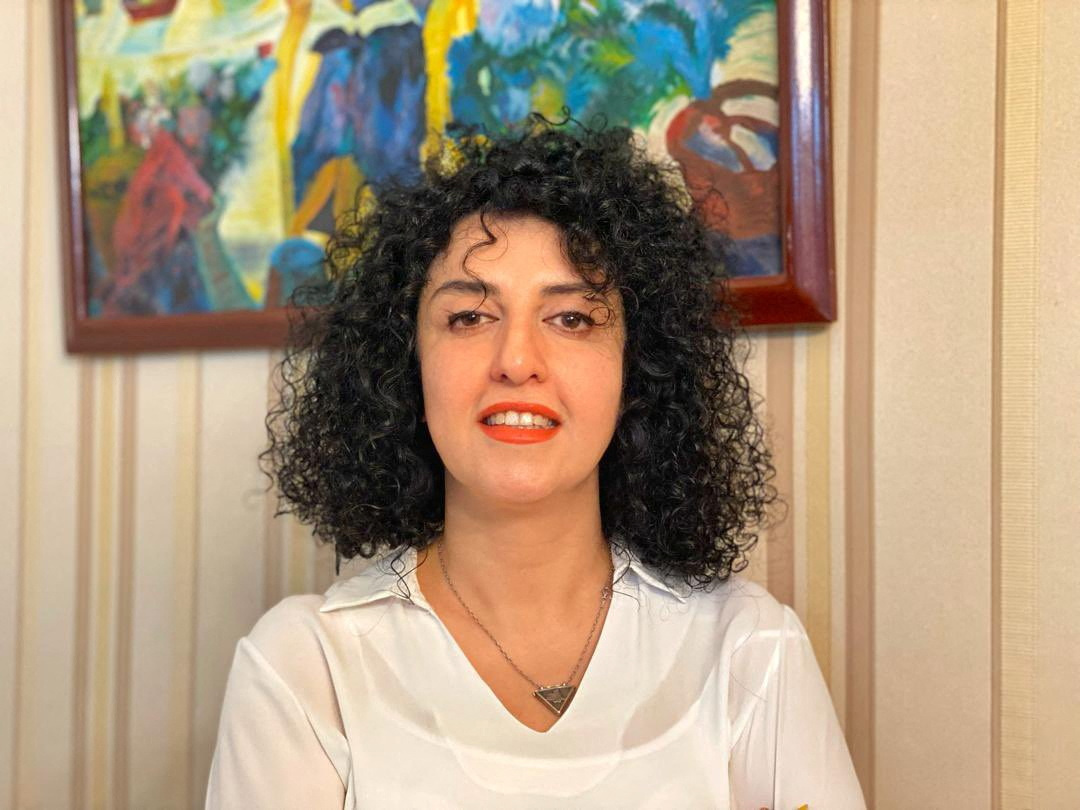Jailed Iranian activist Narges Mohammadi wins Nobel Peace Prize
Oslo (Reuters) – Narges Mohammadi, an Iranian women’s rights advocate serving 12 years in jail, won the Nobel Peace Prize on Friday in a decision likely to anger Tehran’s theocratic government.
The award-making committee said the prize was testimony to all those behind recent unprecedented protests in Iran and called for the release of Mohammadi, who has campaigned for both women’s rights and the abolition of the death penalty.
“This prize is first and foremost a recognition of the very important work of a whole movement in Iran, with its undisputed leader, Narges Mohammadi,” said Berit Reiss-Andersen, head of the Norwegian Nobel Committee Reiss-Andersen.
“If the Iranian authorities make the right decision, they will release her so that she can be present to receive this honour (in December), which is what we primarily hope for.”
Tehran calls the protests Western-led subversion.
Mohammadi is currently serving multiple sentences in Tehran’s Evin Prison amounting to about 12 years imprisonment, according to the Front Line Defenders rights organisation, one of the many periods she has been detained behind bars.
Charges include spreading propaganda against the state.
She is the deputy head of the Defenders of Human Rights Center, a non-governmental organisation led by Shirin Ebadi, the 2003 Nobel Peace Prize laureate.
Mohammadi is the 19th woman to win the 122-year-old prize and the first one since Maria Ressa of the Philippines won the award in 2021 jointly with Russia’s Dmitry Muratov.
“This Nobel Prize will embolden Narges’ fight for human rights, but more importantly, this is in fact a prize for the woman, life and freedom (movement),” Mohammadi’s husband Taghi Ramahi told Reuters at his home in Paris.
‘Inspiration To The World’
The Nobel Peace Prize, worth 11 million Swedish crowns, or around $1 million, will be presented in Oslo on Dec. 10, the anniversary of the death of Swedish industrialist Alfred Nobel, who founded the awards in his 1895 will.
Committee head Reiss-Andersen began her speech by saying, in Farsi, the words for “woman, life, freedom” – a protest slogan – and saying the award recognised the hundreds of thousands who have opposed discrimination and oppression of women in Iran.
Mohammadi’s win came as rights groups say that an Iranian teenage girl was hospitalised in a coma after a confrontation on the Tehran metro for not wearing a hijab.
Iranian authorities deny the reports
The Nobel prize also came just over a year after the death of Mahsa Amini in the custody of morality police for allegedly flouting the Islamic Republic’s dress code for women.
That provoked nationwide protests, the biggest challenge to Iran’s government in years, and was met with a deadly crackdown.
The U.N. human rights office said the Nobel award highlighted the bravery of Iranian women. “We’ve seen their courage and determination in the face of reprisals, intimidation, violence and detention,” said its spokesperson Elizabeth Throssell .
“They’ve been harassed for what they do or don’t wear. There are increasingly stringent legal, social and economic measures against them … they are an inspiration to the world.”


